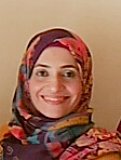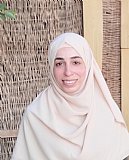Introduction
Modern Standard Arabic (MSA), often referred to as "Fusha," is a fascinating linguistic phenomenon that serves as the literary and formal standard of the Arabic language across the Arab world. As a language with deep historical roots, MSA plays a vital role in uniting diverse Arabic-speaking communities, facilitating communication in academia, media, literature, religion, and international diplomacy. This article will delve into the nature, significance, and characteristics of Modern Standard Arabic.
The Nature of Modern Standard Arabic
Modern Standard Arabic is a standardized form of Arabic used for written communication and formal spoken discourse. It exists alongside the many regional dialects spoken throughout the Arab world, each with its unique variations and nuances. Unlike these colloquial dialects, MSA transcends geographic boundaries, making it accessible and comprehensible to speakers from different regions.
Characteristics of Modern Standard Arabic
- Grammatical Consistency: MSA is characterized by a high degree of grammatical consistency. It adheres to strict grammatical rules, which remain largely unchanged across different contexts. This consistency allows MSA to serve as a lingua franca in educational and formal settings.
- Vocabulary and Lexicon: MSA incorporates a vast vocabulary derived from classical Arabic, ensuring continuity with historical texts. While it accommodates some loanwords from other languages, these borrowings are typically assimilated into the Arabic linguistic structure.
- Pronunciation and Phonology: Although pronunciation may vary slightly among regions, MSA maintains a standardized phonological system. It is characterized by sounds not present in many colloquial dialects, which require learners to acquire additional phonetic skills.
- Verb and Verb Tense System: MSA features a complex verb and verb tense system, allowing for precise expression of time and action. This complexity can be challenging for learners but provides rich linguistic tools for expression.
- Writing System: MSA uses the Arabic script, a beautiful and intricate writing system that is read from right to left. While each letter has multiple forms depending on its position in a word, this system contributes to the unique aesthetics of written Arabic.
Significance of Modern Standard Arabic
- Linguistic Unity: MSA serves as a unifying linguistic force, enabling speakers from different regions to communicate effectively. It is used in education, media, literature, and formal speeches, fostering a sense of linguistic unity among Arab communities.
- Cultural and Literary Preservation: MSA connects modern Arabic speakers with their rich literary and cultural heritage. It allows access to classical Arabic literature, including works by renowned poets like Al-Mutanabbi and philosophers like Ibn Khaldun.
- Religious Significance: MSA is the language of the Quran, the holy book of Islam. It is used for religious texts, sermons, and Islamic scholarship, emphasizing its profound religious and spiritual importance.
- International Diplomacy: MSA plays a pivotal role in international diplomacy among Arab countries and in their interactions with non-Arab nations. It is the language of formal communication in diplomatic settings.
Conclusion
Modern Standard Arabic, with its grammatical consistency, historical depth, and broad utility, stands as a remarkable linguistic bridge across the Arab world. It provides a shared means of communication, preserves cultural and literary heritage, and plays an essential role in religious and diplomatic contexts. While colloquial dialects are prevalent in daily life, MSA remains a critical component of the Arabic language's vitality and relevance in the modern world.















